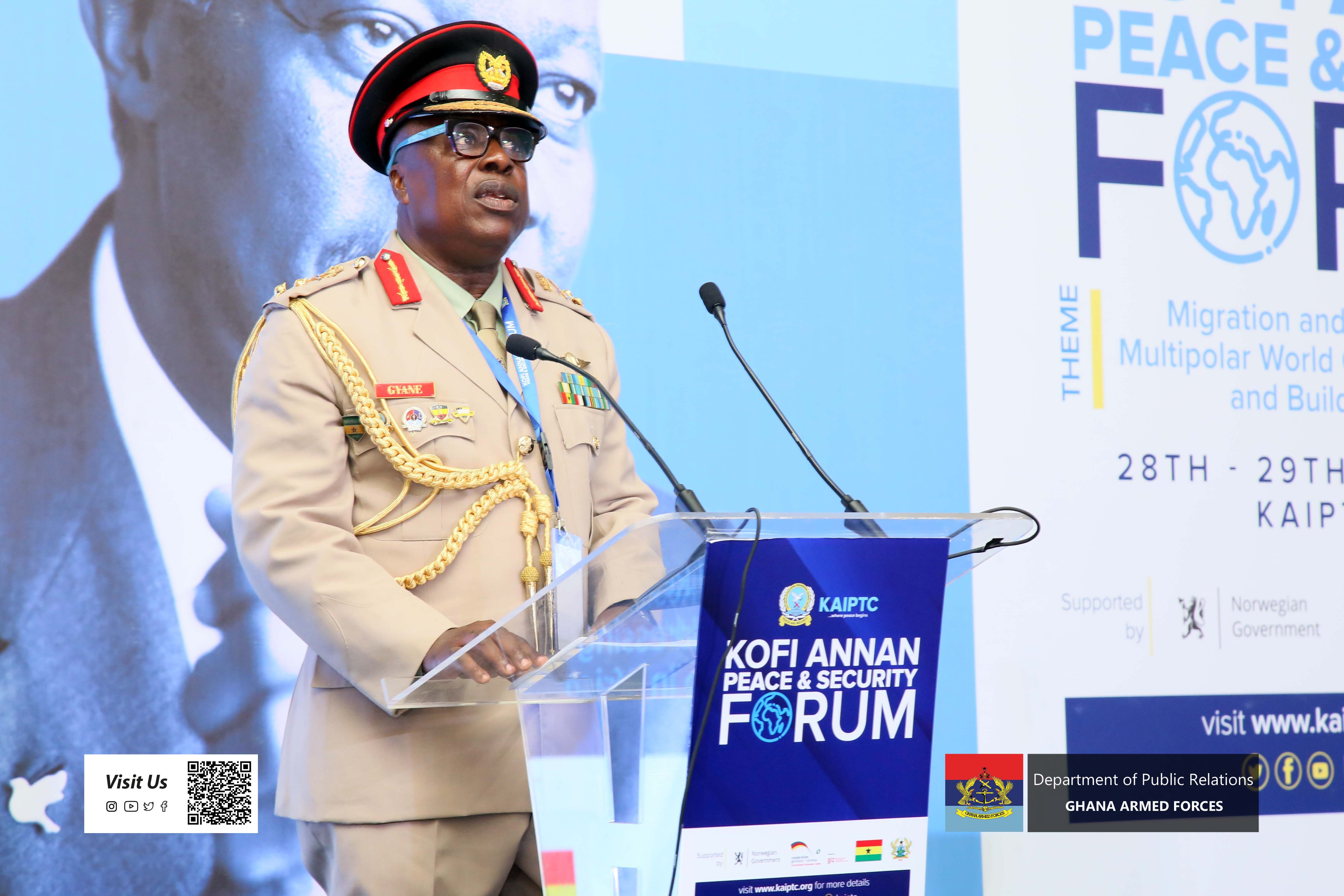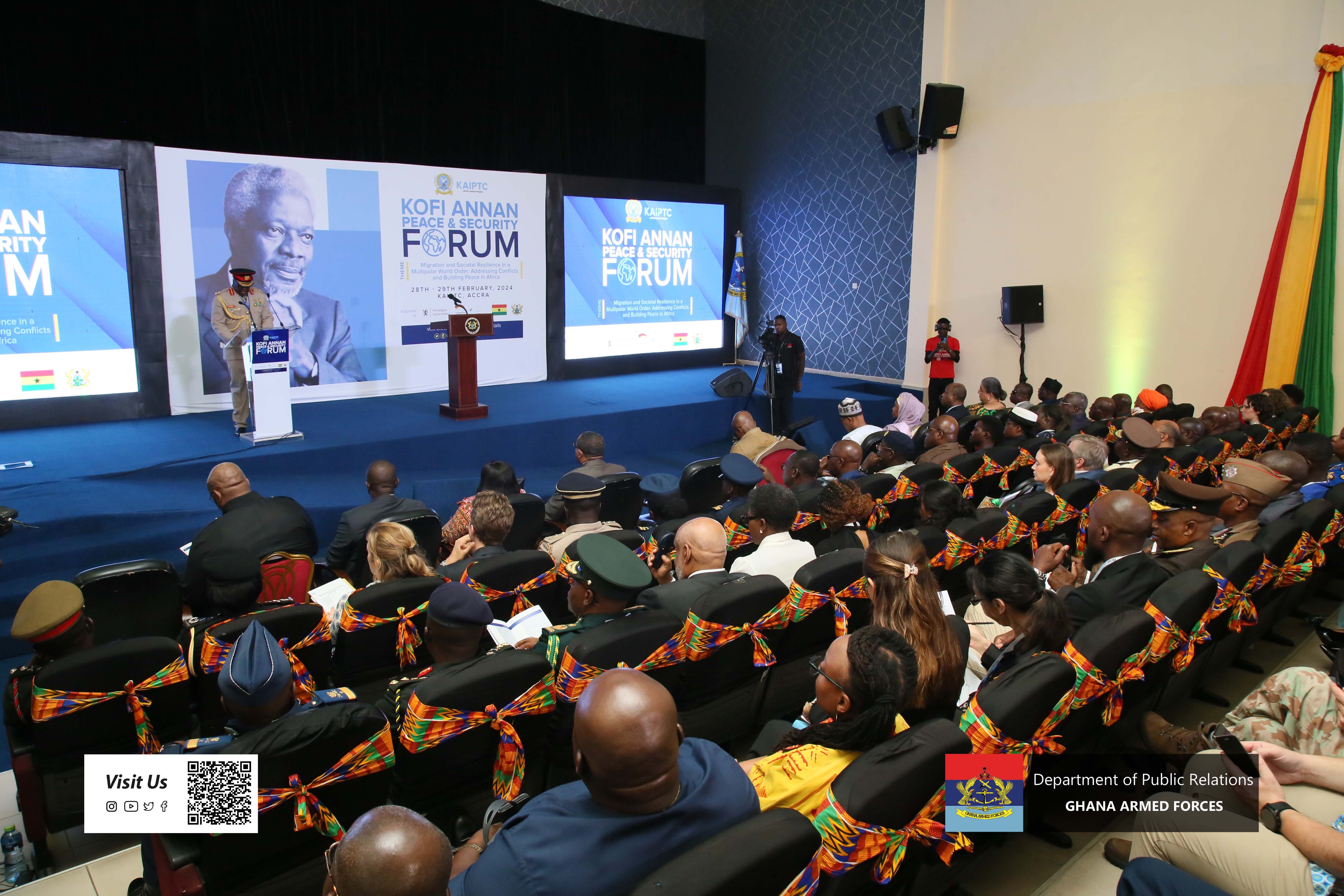The third edition of the Kofi Annan Peace and Security Forum (KAPS Forum) on migration, conflict, and societal resilience in Africa has been held from 28-29 February, 2024. The 2-day forum organised at the Kofi Annan International Peacekeeping Training Centre (KAIPTC) in Teshie, convened leading experts to analyse the root causes of migration and its impact on security and societal resilience in Africa. Speaking at the forum, the President of the Republic, Nana Addo Danquah Akuffo-Addo, said migration has been an integral part of human history that has shaped societies and economies. He added that migration has historically facilitated cultural exchange, economic growth, and innovation, by enriching both origin and destination countries. He acknowledged that migration presented new challenges due to factors such as globalization, technological advancements, and geopolitical tensions. He said the emergence of complex issues such as irregular migration, human trafficking, and displacement, require concerted international efforts to address effectively. C-in-C emphasized that migration would continue to be a significant phenomenon driven by demographic, economic, and environmental factors. He stressed the importance of adopting proactive policies that recognize the inevitability of migration and harness its potential for mutual benefit while addressing concerns related to social integration, labor market dynamics, and human rights. The Commandant KAIPTC, Major General Richard Addo Gyane, echoed similar sentiments, emphasizing the urgent need to address migration and conflict in Africa. He cited violent extremism, political instability, and climate change as key drivers of population movements within the continent. The forum also explored innovative approaches to address migration challenges, promote peaceful coexistence, and build sustainable solutions. Key participants include former African heads of state, Government officials, Diplomats, and representatives from international organizations like the United Nations, African Union, and ECOWAS. 



EVENTS
Feb 29 2024




















